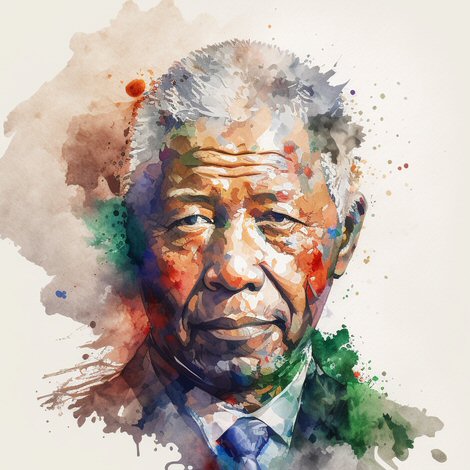 |
"Bias & Bigotry" |
||||
| More... |
Nelson Mandela was born on July 18, 1918, in the small village of Mvezo, in the Umtata district, part of South Africa's Eastern Cape Province. Born to the Thembu royal family, his father, Gadla Henry Mphakanyiswa, was a local chief and councilor to the monarch; his mother, Nosekeni Fanny, was the third of Gadla's four wives. Mandela was given the forename Rolihlahla, a Xhosa term colloquially meaning "troublemaker," perhaps a prescient nod to his future role as a disruptor of South Africa's racially discriminatory policies. Following his father's death when Mandela was only nine, he was adopted by Chief Jongintaba Dalindyebo, the acting regent of the Thembu people, which provided him with the opportunity to gain an education and eventually study law at the University of Fort Hare and later at the University of Witwatersrand. Mandela came of age in an era defined by colonialism and the rise of apartheid—a rigorous system of institutionalized racial segregation and discrimination that was established in South Africa in 1948. This social and political climate, marked by intense racial strife and the legal codification of white supremacy, was the backdrop against which Mandela’s views on racial injustice and his political ideologies were formed. After being expelled from university for participating in a student protest, he became actively involved in the anti-apartheid movement, joining the African National Congress (ANC) in 1943. As one of the ANC's leaders, Mandela directed a campaign of peaceful, non-violent defiance against the South African government and its racist policies, which later escalated into more confrontational activities after the Sharpeville Massacre in 1960. Mandela's commitment to fighting racial oppression led to his imprisonment for 27 years, a period during which his reputation as a potent symbol of resistance grew. Released in 1990, he played a pivotal role in the eradication of apartheid and the establishment of multiracial elections in 1994, in which he became South Africa's first Black president. His presidency was characterized by efforts to dismantle the legacy of apartheid through tackling institutionalized racism, poverty, and inequality, and fostering racial reconciliation. Mandela's leadership style and his advocacy for peace, forgiveness, and understanding were crucial in helping South Africa transition from a system of racial division to one of equality. His achievements in overcoming apartheid and leading South Africa to a new, democratic era have made him a global icon for freedom and justice, embodying the struggle for dignity, equality, and human rights. Reference: Wikipedia.org |
||||
|
|
